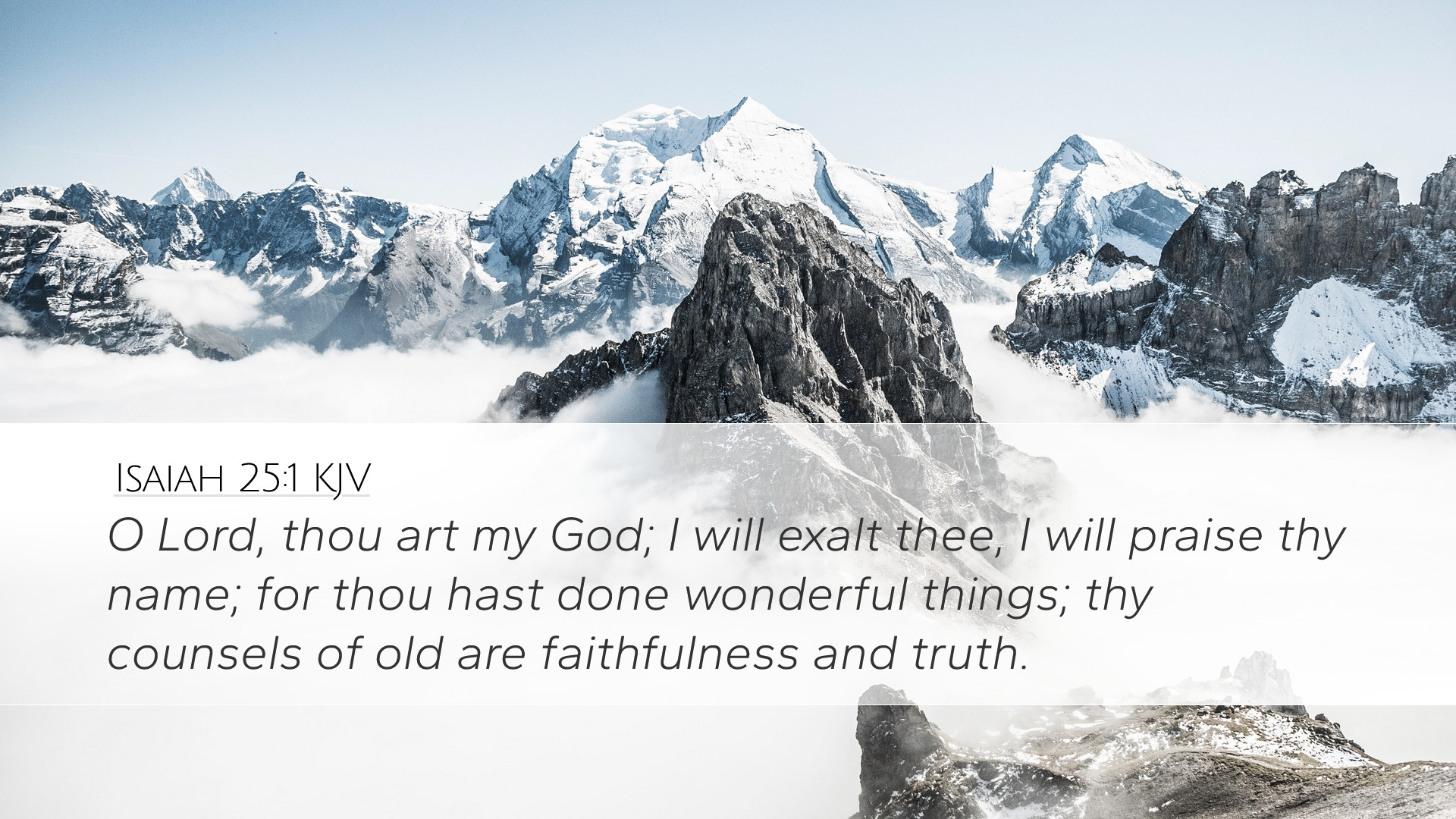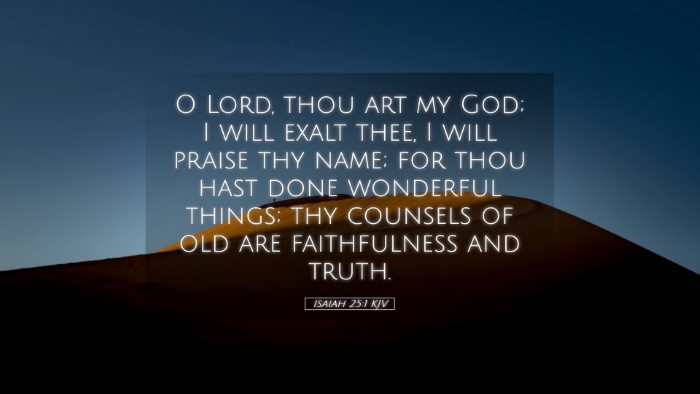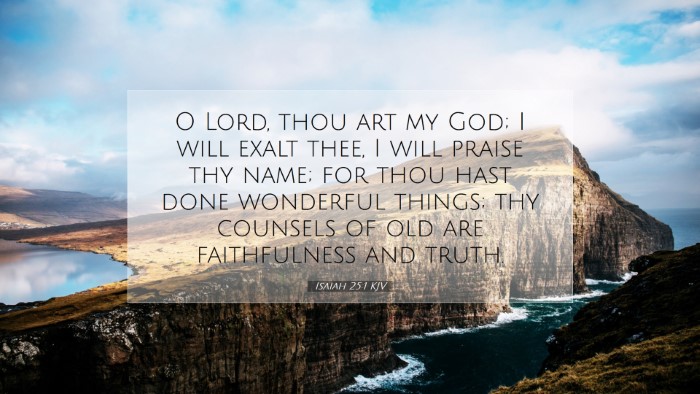Commentary on Isaiah 25:1
Isaiah 25:1 states:
"O Lord, you are my God; I will exalt you; I will praise your name, for you have done wonderful things, plans formed of old, faithful and sure."
Introduction
The book of Isaiah is essentially a prophecy of hope and judgement, capturing themes of God's sovereignty and faithfulness. In this treasured verse, Isaiah articulates a profound response of worship to God based on the revelation of His nature and works. The verse stands as a pivotal moment in the understanding of Israel's relationship with God and showcases the prophet's personal devotion.
Theological Insights
From a theological perspective, this verse underscores several important concepts:
- Divine Sovereignty: The acknowledgment of God as "my God" expresses a personal relationship and recognition of His authority over all creation.
- Worship as Response: The emphasis on "I will exalt you; I will praise your name" reflects a natural response to the revelation of God's character, highlighting worship as fundamental to human purpose.
- God's Wonderful Works: The reference to "wonderful things" invites a deeper exploration of God’s past actions, particularly His faithfulness in delivering Israel from various adversities.
Commentary from Historical Figures
Matthew Henry
Matthew Henry emphasizes the personal nature of the relationship with God in this verse. He notes that the expression "my God" indicates a deep, intimate connection and commitment. He points out that true exaltation of God comes from a heart fully committed to Him, highlighting that praise is not merely an act but a reflection of one's entire being directed towards God.
Albert Barnes
Albert Barnes stresses the importance of remembering God's past deeds as a means to bolster faith and encourage trust in future promises. He remarks on the phrase “plans formed of old,” suggesting that God's plan for salvation has been established from eternity and is fundamentally rooted in His unchanging nature. Barnes encourages readers to recognize God's faithfulness in their own lives as they remember His past deeds.
Adam Clarke
Adam Clarke provides a more contextual analysis, connecting this verse to the themes of comfort and hope for the Jewish people during exilic times. He explains that Isaiah’s declarations serve a dual purpose: to acknowledge God’s past faithfulness and to inspire hope in His future deliverance. Clarke elaborates on the notion that God’s ways and plans are "faithful and sure," demonstrating God’s reliability in an unpredictable world.
Practical Applications
For pastors, students, theologians, and Bible scholars, this verse offers rich opportunities for application:
- Encouragement for Worship: This verse serves as a reminder to cultivate a lifestyle of worship, recognizing that exalting God is a response to His nature and deeds.
- Faith in Divine Plans: Emphasizing God’s eternal plans encourages believers to trust in God’s sovereignty, especially during challenging times.
- Proclamation of God’s Works: Sharing personal testimonies of God's 'wonderful things' can strengthen community and lead to collective worship.
Conclusion
Isaiah 25:1 encapsulates the essence of the believer's response to God. By proclaiming His greatness and recognizing His steadfastness, believers not only engage in individual worship but also contribute to the broader narrative of faith. The reflections offered by historical commentators provide profound insights that remain relevant for contemporary Christian life. In a time where faith is tested, Isaiah’s declaration reminds us of the foundational reasons to exalt the Lord and praise His name.


